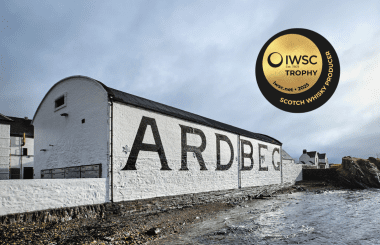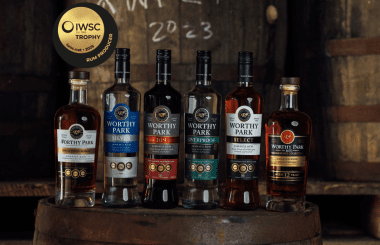Olivier Ward on how to elevate a gin from good to gold
In this Spirits edition, member of the IWSC's Spirits Judging Committee, Olivier Ward shares the critical elements that elevate a gin from good to gold. When judging gin quality, several objective factors come into play, says Olivier.
Flavour Cohesion
"Do the botanicals blend harmoniously, with nothing out of place? A well-crafted gin should balance all flavours, showcasing juniper clearly. Each botanical should complement the others without overpowering them, creating a coherent and unified profile. Many judges will call this balance - but whatever term you want to place on it - it's this idea of harmony that plays a major factor when judging."
Flavour Intensity
"Think of this as the volume or the boldness of each botanical. As mentioned above - a great gin is balanced (neither overwhelming nor fading into the background). But overall, the intensity should be bold enough to hold its own in a mixed drink. It's akin to the overall level of sound coming out of a pair of speakers - the music might be perfect, but you need to hear it and feel it - not too loud but not too distant. The reason is simple - the flavour intensity helps determine how well a gin stands up in different serves, from cocktails to classic G&Ts and reflects the distiller’s skill in balancing potency without losing nuance."
Flavour Sequencing
"A good gin offers a flavour journey — starting with bright top notes, moving to a rich middle, and finishing with a satisfying endnote. The way flavours unfold is critical, as it provides depth and complexity to the tasting experience. There must be a transition - it can't just be a homogeneous note! A well-sequenced gin tells a story through its flavours, giving you different moments of discovery from the first sip to the last. This evolving nature of flavours, from initial botanical brightness to a lingering, satisfying finish, distinguishes a good gin from an exceptional one."
Spirit Integration
"The mouthfeel of a gin should be enjoyable. Often, that's a combination of the base spirit and the botanicals. The result should be smooth and well-integrated, enhancing the overall experience without harshness. Irrespective of being noticeable or truly neutral - the base spirit is the canvas on which a gin is layered, and how it's been considered greatly impacts the final product. If you can state that there is botanical clarity and balance centred around juniper, good intensity, a flavour journey/sequence and a rounded and well-integrated spirit – then you have a well-crafted gin on your hands, and it will score a medal. How well it delivers that and if it can layer additional ideas of provenance, personality, and uniqueness is what separates the bronze and silver."
The challenge for Gold Medals?
"Adding in the subjective elements on top. A major consideration for what gets a gold (as opposed to a silver) is the discussion between judges. Put simply, once the objective criteria are all met and assuming the liquid delivers on all areas well - it becomes a question of how the liquid was experienced by the selection of elite palates in the room.
Each judge is seeking to discover something in every sample. To get something out of what's in their glass. To get an emotive reaction and be swept away as they suspend disbelief for the duration of a second or third sip and try to connect with the maker's intention.
To return to the analogy of music - what separates good and great songs isn't just about the technical composition. It's how it connects with the person listening. What it evokes and how it arrests you in the moment and forces you to stop and take note.
Gin is the same. Once the academic and objective elements are marked - it's a question of the more intangible elements and the extent to which they bear an influence on the panel’s overall decision.
The IWSC has tables packed with judges who are looking for those elements and when they do connect – are ready to advocate for what they believe in and for what's in their glass. We discuss everything.
As the Spirits Judging Committee member, I specifically encourage that dialogue. Engaging with this juxtaposition of factual and academic with the emotive and subjective is key to awarding gold medals. After all, it's what making gin is all about. To wrangle botanicals into complex profiles, tell stories in liquid form and make someone feel excited..."
Spirits Expert & member of the Spirits Judging Committee, Olivier Ward is one of the world's foremost gin specialists. Former editor of Gin Foundry and winner of IWSC's Spirits Communicator of the Year, he pioneered the innovative Botanical Tasting Wheels. As Channel 4's resident gin expert on Sunday Brunch and a member of the prestigious Gin Guild, he brings his extensive knowledge of distillation and botanical expertise to the IWSC judging panel.



